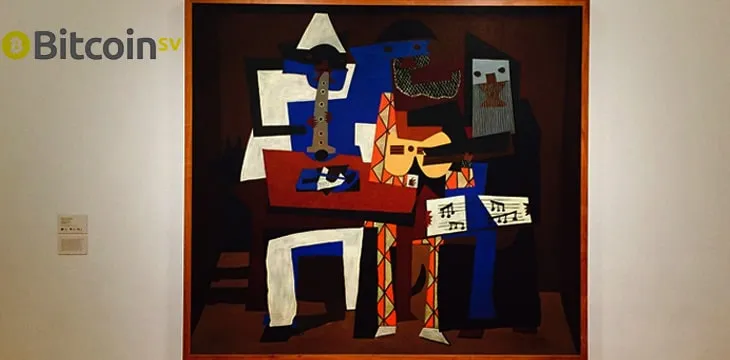|
Getting your Trinity Audio player ready...
|
For the first time ever, artwork created by Picasso was paid for entirely in digital currency.
Pablo Picasso’s Danse du ventre devant homme impassible was purchased by Idoneus, a Swiss company that is looking to use digital assets to make the transaction of luxury assets “more swift, transparent and secure.”
Idoneus purchased the Picasso piece for an undisclosed amount of money and used their IDON token to pay. The Swiss company has the right idea when it comes to tokenizing fine art, but Idoneus goes wrong thinking that they need their own token/platform to facilitate these luxury transactions.
The benefits of tokenized art
Tokenization of fine art ownership would solve a significant problem the fine art world experiences—counterfeit and fraudulent goods being passed off as authentic. According to a report from Switzerland’s Fine Art Expert Institute, roughly 50% of art circulating on the market is forged or misattributed. The Fine Art Expert Institute went on to say that approximately 70–90% of artworks that their organization examines on behalf of collectors and dealers end up not being by the artist claimed.
If there was a way to give authentic art an identity on the blockchain, and transfer that identity token from owner to owner, the art industry could effectively combat the counterfeit and fraudulent goods problem that it is currently faced with.
Bitcoin solves this
Instead of companies creating individual ledgers and valueless tokens to map luxury assets—like Idoneus has done with their IDON token—luxury assets and fine art should be tokenized on Bitcoin.
Bitcoin SV already has the infrastructure in place to map real-world assets like fine art to a digital identity on the blockchain. Two companies in particular, Tokenized and Run, allow individuals to tokenize assets on top of Bitcoin.
In addition, the Bitcoin network encourages government and legal compliance, so users can be confident that they are not dealing with companies that are operating illegally. And Bitcoin operates at scale, so its users do not have to worry about a transaction having an abnormally high transaction fee or there being long block confirmations times that delay payment settlement.
Tokenizing luxury goods for the Bitcoin Association Hackathon?
When it comes to tokenizing luxury goods, the challenge is mapping the real-world goods to the blockchain, and being able to recognize and authenticate that real-world good based off of the information that is stored on the blockchain.
In other words, the challenge is finding identifiable characteristics that only the authentic version of the asset has, and creating a blockchain identity that encompasses those features.
(As far as I know), there are currently no platforms or services built on BSV that solve the counterfeit/fraudulent goods problem related to luxury assets. That being said, creating a solution to that problem may be a good project for the upcoming Bitcoin Association 2020 BSV Virtual Hackathon.

 07-04-2025
07-04-2025 





